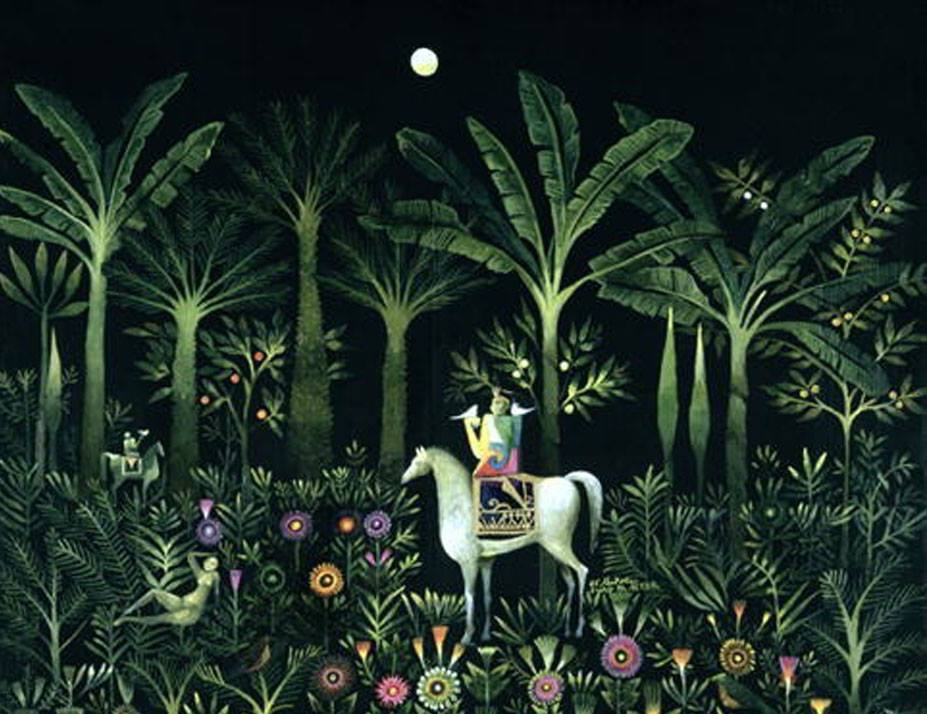
“To live among today’s society and to influence others instead of being influenced by them —now that’s a feat !”
-Ostad Elahi
In his pioneering book Public Opinion, Walter Lippmann (1889-1974) examines our susceptibility to outside manipulation, and tendency for self-deception. Our minds or mental spaces are lured by the media and the social influences of our milieu, which define our choices, snatch our attention and shift our values. Content management, artificial intelligence, and neuroscience all intervene with how we perceive, think, and make decisions; they blur our comprehension of the truth and ultimately influence who we really are. We rely on external factors and social influences to make sense of the world, and to realign our values accordingly.
Ostad Elahi, the 20th century thinker and judge, reflects on the human condition of living in today’s society. He compares it to a jungle, and defines traversing this jungle as a true miracle :
To live among today’s society and to influence others instead of being influenced by them —now that’s a feat !
Yet what counts for him is to strive to keep the real goal in mind while in this jungle: to be an exemplary good human being who treats his fellows in kind, acts in line with the dignity of the spiritual part of his being, and who diligently searches for the truth behind the appearances.
Kierkegaard argued that, when exposed to an abundance of external influences ruling the golden age of information, the “truth” of the majority remains to be an illusion: “Truth always rests with the minority… while the strength of the majority is illusory.”
Hanna Arendt similarly defines how plurality came to govern the earth through propaganda in a variety of subtle and open discourses, distorting people’s fragile relation to reality. Instead of trusting their own opinions, people get to believe what they are told about their lives. She said:
The ideal subject of totalitarian rule is … people for whom the distinction between fact and fiction and the distinction between true and false no longer exists.
The Nobel-winning psychologist Daniel Kahneman explains the paradox of evidence and the mind’s need of coherence :
The confidence people have in their beliefs is not a measure of the quality of evidence but of the coherence of the study that the mind has managed to construct.
The truth may be compromised in exchange of the comfort of an ego-coherent story.
We may notice in ourselves that at times, whether consciously or unconsciously, we surrender to the pseudo reality as it is presented to us without even checking the veracity of this information. The individual analyses and opinions may often be constructed based on subjectively limited information which nevertheless serve the comfort zone and well-being of one’s ego. On a larger scale, Lippmann observes how opinions are shaped into what is called the Public Opinion or a “group mind”, coupled together with a social and/or material purpose. In this pseudo-environment created by the media, reality may twist, and wilful self-deception may become an adopted pattern to avoid conflicts, to preserve self-image, and to serve the ego. In the bliss of ignorance one may deviate from, and even forget his true self.
As E.E. Cummings once said:
To be nobody but yourself —in a world which is doing its best, night and day, to make you somebody else —means to fight the hardest battle which any human being can fight, and never stop fighting.
To preserve the compound of our true being and to become truly human, it seems essential to delve in to know one’s self, to work on oneself, and to remain steadfast in one’s pursuit of truth.
Duygu Bruce







